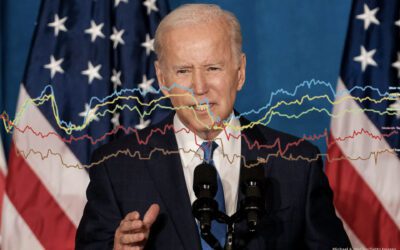Last month, the Supreme Court ruled that all of us—straight, gay, lesbian, bisexual, transgender—could marry the person they love. This decision brought our nation one step closer to equality. But this journey is not over. Even in an America where we are free to marry, other basic civil rights are lacking. Thirty-one states lack fully inclusive non-discrimination protections for LGBT people in critical matters of employment, housing, and access to public places. That means in many states, LGBT Americans are still at risk of being denied services, being fired for getting married and wearing their wedding ring to the office the next day, or simply for being who they are. This injustice has grown increasingly intolerable to an overwhelming majority of Americans.
Today, Democracy Corps, Greenberg Quinlan Rosner Research and the Human Rights Campaign release the results from a new survey of likely 2016 voters. This survey reinforces voters’ long-held commitment to non-discrimination, as four out five voters believe this is a basic civil right. This survey also demonstrates voters are willing to oppose candidates for public office who oppose these basic civil rights, including groups critical to the outcome of the 2016 election. These results are very consistent with a Human Rights Campaign survey of likely voters taken in January showing 43 percent are much less likely to support a candidate who opposes non-discrimination.
Moreover, the issue of “faith” does not change the politics of this issue. Voters do not accept religion as an excuse to discriminate.
This memorandum summarizes the results of a national telephone survey of 950 likely 2016 voters. In order to better reflect the changing habits and demography of the country, 60 percent of those interviewed for this survey responded using cell phones. The survey was conducted June 13-17, 2015 and carries a margin of error of +/- 4.38.
Key Findings
- Voters reject discrimination. By an impressive 78 percent to 16 percent, voters support protecting gay, lesbian, bisexual and transgender people from discrimination in employment. These results are very consistent with past surveys; in 2011, voters supported this proposal by a 79 to 18 percent margin.
- Support for non-discrimination unites the country. At a time when Democrats and Republicans rarely agree on anything, they agree on this. A 64 percent majority of Republicans support protecting LGBT people from workplace discrimination, as do 90 percent of Democrats. Similarly, this legislation draws impressive majorities among college (84 percent) and non-college voters (73 percent), younger (85 percent) and older (75 per-cent), as well as observant Christians (70 percent favor).
- Voters will also consider this issue when voting next year. A 59 percent majority of voters are less likely to support a candidate for president who opposes protecting gay, lesbian, bisexual and transgender people in the work place. Just 27 percent are more likely and 9 percent say it would make no difference. This is not just a progressive base issue. A 61 percent majority of Independent voters say they are less likely to support a candidate who opposes these protections, as do 58 percent of Catholic voters, 54 percent of blue collar voters and 60 percent of married women.
- This could be key issue among white millennial voters. Arguably, the most interesting group in this debate is white millennial voters (defined here as voters born between 1980 and 1997). These younger white voters supported Obama in 2008, but voted Republican in 2010, 2012 and 2014, reflecting their frustration with the slow pace of change. However, they are committed to equality. A near-unanimous 86 percent majority support em-ployment protections for LGBT people. Moreover, 65 percent are less likely to support a candidate who opposes this protection.

- Religion is not an excuse to discriminate. Politicians in Indiana, Arkansas and a number of other states have raised the issue of faith in efforts to stop the advance of non-discrimination. As we found out in Indiana voters are having none of it. In this survey, a 56 percent majority believe small business owners should not be allowed to refuse service to someone because they are gay or lesbian, even if it violates their religious beliefs. Nearly half (46 percent), strongly oppose giving small businesses the right to discriminate, including 55 percent of white millennials.
Conclusion
This legislation is long overdue. Non-discrimination legislation was first introduced to Congress in 1974 and has been reintroduced many times since. As early as 1977, voters believed gay people should have “equal rights” in terms of job opportunities, according to Gallup. Nearly forty years later, this community is still waiting for federal legislation fully protecting their rights. This time, they carry the conviction of an impressive majority of American voters.




